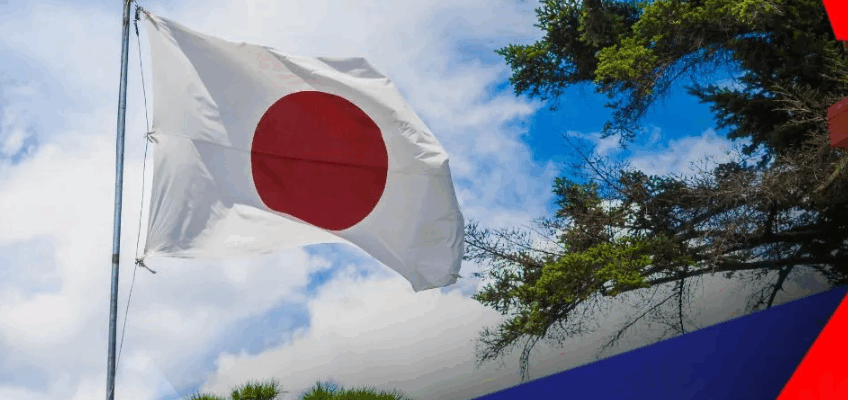Speaking at the SiGMA Asia 2025 summit in Manila, Joji Kokuryo, Managing Director of Bay City Ventures, said Japan’s regulatory spotlight is shifting from offshore platforms themselves to their marketing tactics and social media channels.
Japan’s Gambling Ad Rules Aim for ‘Delicate’ Balance, Expert Says

Illegal but Active: Japan’s Online Gambling Reality
Kokuryo highlighted the scale of offshore gambling activity in Japan, citing National Police Agency data: “Online gambling is illegal here,” he said, noting that over three million Japanese have gambled with real money online, with around two million still active users. Police surveys estimate Japanese customers spend roughly ¥1.2 trillion ($8.2 billion) annually on such platforms.
Public awareness remains muddled. Government research shows that 43% of respondents do not know online casino gambling is illegal. Kokuryo attributes this to the careful language used for legal forms of betting — such as horse racing and sports wagering — which are often described as “lawful betting” rather than “gambling.” This subtle wording blurs the line between licensed domestic betting and prohibited offshore gambling.
Crackdown on Influencers and Accountability Push
Kokuryo traced how enforcement has evolved. In 2023, police fined a YouTuber about ¥10,000 ($68) for livestreaming himself gambling online with real money. The following year, another influencer was prosecuted for sharing referral links to overseas casino sites.
In recent years, public figures — from streamers and entertainers to athletes — have faced serious fallout even without formal charges. Many have been forced to issue public apologies, and incidents often make national headlines. Kokuryo recalled cases where a wealthy pro baseball player was prosecuted and suspended, celebrities lost TV appearances after admitting to online gambling years earlier, and others lost major brand deals despite no criminal indictment.
This reputational risk is pushing companies to act. “Firms, especially in gaming and fintech, are now doing compliance training to clarify which gambling is legal and what to avoid,” Kokuryo noted.
Targeting Promotion, Not Just the Act
Japan is preparing to further tighten gambling laws. Kokuryo explained that revisions to the anti-gambling addiction law, effective September 25, 2025, will cover not only participation but also promotion of offshore gambling.
The revisions will introduce two key changes:
- Prohibiting the promotion of gambling, including through affiliate sites and ranking portals;
- Banning the promotion of free casino-style games that encourage users to become gamblers.
Instead of heavy-handed measures like website blocking — a politically sensitive issue in Japan, where access to information is protected — enforcement will focus on controlling the flow of funds. “Many Japanese exchanges are emailing customers to warn them about gambling-related transfers… or saying they have the right to freeze such transactions,” Kokuryo said, referencing a recent notice from GMO Coin, a major crypto exchange.
Sports Betting: Legal and Far Larger in Scale
While offshore casinos face growing scrutiny, legal domestic sports betting continues to thrive. Kokuryo cited figures from the Sports Ecosystem Revitalization Council showing that Japanese consumers wager about ¥5.4 trillion ($36.8 billion) annually on sports — four to five times the offshore casino market.
Top legal options include Toto Winner, which covers football and basketball, and Japan’s most bet-on sport: baseball. Despite offshore casinos grabbing headlines, sports betting is Japan’s biggest legal gambling market today.
Adapting for Compliance: SEO, Payments, and Risk
Kokuryo warned that even indirect promotion could be targeted under the new law. Many SEO-driven casino ranking articles are expected to fall afoul of the rules. “Ads you used to see on platforms like YouTube or DAZN are disappearing,” he observed.
Crypto exchanges and payment processors are also tightening controls. “Many exchanges email users saying: ‘If you’re using this for gambling, we can freeze your transaction.’” Authorities increasingly rely on credit card transaction data to identify individuals involved in illegal online gambling — focusing on payment flows rather than usernames or crypto wallets.
Stricter Enforcement Requires Cultural Sensitivity
Kokuryo’s message to operators is clear: entering the Japanese market now requires a nuanced, highly localized approach. With upcoming legal changes targeting both direct and indirect promotion, operators and affiliates must rethink traditional marketing models to avoid legal exposure.
With enforcement becoming more precise — from tracking funds to using public tip-offs — Japan’s signal is unmistakable: even if users aren’t fully aware of the risks, regulators are watching closely. Staying compliant demands not only legal knowledge but also alignment with Japan’s cultural and regulatory sensitivities.












